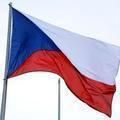První republika 1918–1938, část 3
Erste Republik 1918-1938, Teil 3
First Republic 1918-1938, part 3
Primera República 1918-1938, 3ª parte
Prima Repubblica 1918-1938, parte 3
Eerste Republiek 1918-1938, deel 3
Pierwsza Republika 1918-1938, część 3
Первая республика 1918-1938, часть 3
Перша Республіка 1918-1938, частина 3
Do československých poměrů státu s vysokou životní úrovní, projevující se také výstavbou vilových čtvrtí většiny měst, vážně zasáhla celosvětová hospodářská krize první poloviny třicátých let, v roce 1933 tak bylo v Československu téměř 1 000 000 nezaměstnaných.
||Verhältnisse||||||die sich zeigende|||Bau|Villengebieten|Vierteln||||hatte||||||||||||||fast|
|Czechoslovak|conditions|||high|standard of living|standard of living|manifesting||also|the construction of|villa|quarters|most of|cities|seriously|affected|global|economic|crisis||of the first|thirties||||||||almost|of the unemployed
||умов||||||яка проявлялася||||||||||||||||||||||||
||condições||||||manifestando-se|||construção|de vilas|bairros de vilas||||impactou|crise econômica mundial|||||||||||||quase|desempregados
Die Weltwirtschaftskrise in der ersten Hälfte der 1930er Jahre hatte schwerwiegende Auswirkungen auf die tschechoslowakischen Verhältnisse eines Staates mit hohem Lebensstandard, was sich auch im Bau von Wohnvierteln in den meisten Städten zeigte, und 1933 gab es in der Tschechoslowakei fast 1.000.000 Arbeitslose.
The Czechoslovak state of high living standards, also manifested by the construction of the residential areas of most towns, seriously affected the global economic crisis of the first half of the 1930s, and in 1933 there were nearly 1,000,000 unemployed in Czechoslovakia.
Dalším vážným zásahem do vývoje situace v RČS byl nástup Adolfa Hitlera k moci v sousedním Německu, který se stal podnětem pro vznik Sudetoněmecké strany, která vyvolávala v českém pohraničí protičeské nálady a kladla československým oficiálním orgánům požadavky dle zadání A. Hitlera.
||Eingreifen||Entwicklung||||||||||||||||Anlass||Entstehung|Sudetenländische|Partei||verursachte|||Grenzgebiet|gegen Tschechien|||verursachte|||||nach|||
||||development|the situation||||||||||neighboring|||||the impetus||the emergence|Sudeten German|||was provoking||Czech|borderland|anti-Czech|moods||||||demands|according to|assignment||
||втручанням||розвитку|||||прихід|||||||||||підставою|||||||||||||||||вимоги||завдання||
|sério|intervenção|||||República Checa||||||||vizinhança|||||impulso||||||gerou sentimentos anti-checos|||fronteira checa|anti-checas|sentimentos anti-checos|||||||de acordo com|instruções de||
Ein weiterer schwerwiegender Eingriff in die Entwicklung der Situation in der RČS war die Machtübernahme Adolf Hitlers im benachbarten Deutschland, die zum Anstoß für die Gründung der Sudetendeutschen Partei wurde, die in den tschechischen Grenzgebieten eine antitschechische Stimmung schürte und im Auftrag Hitlers Forderungen an die tschechoslowakischen offiziellen Stellen stellte.
Another serious interference with the development of the situation in the RČS was the advent of Adolf Hitler to power in neighboring Germany, which became an impetus for the creation of the Sudeten German Party, which provoked the anti-Czech moods in the Czech borderland and demanded the requests of A. Hitler for Czechoslovak official bodies.
Československu se začalo přezdívat „ostrov demokracie ve střední Evropě“.
|||nennen|||||
||began|to nickname|island|democracy||central|
|||називати|||||
|||ser chamado|||||
Die Tschechoslowakei wurde als "die Insel der Demokratie in Mitteleuropa" bekannt.
Czechoslovakia has begun to nickname "the island of democracy in Central Europe".
Od roku 1937 (po skonu T.G.
|||Tod||
|||смерті||
|||morte||
Seit 1937 (nach dem Tod von T.G.
Since 1937 (after TG
Masaryka 14. září 1937) se situace začala dramaticky radikalizovat, což vyvrcholilo protičeským pučem v září 1938.
||||||||kulminierte||Putsch||
||||||to radicalize|which|culminated|anti-Czech|coup||September
||||||радикалізуватися||||переворотом||
|setembro|||||radicalizar|o que|culminou|anti-checo|||setembro
Masaryk am 14. September 1937), begann sich die Situation dramatisch zu radikalisieren und gipfelte im antitschechischen Putsch im September 1938.
Masaryk, September 14, 1937), the situation began to radically radicalize, culminating in the anti-Czech coup in September 1938.
Zcela v souladu s rostoucími vlivy nacionalistických hnutí a tendencí v té době také Slováci začali usilovat o svoji národní identitu (viz Hlinkova slovenská ľudová strana).
vollständig||Einklang||wachsenden|Einflüssen||||||||||||||||siehe|Hlinkas||Volks-|
completely||accordance||growing|influences|nationalist|movements||tendency||that|time|||began|to strive||their||identity|(see)|Hlinka's|Slovak||party
|||||||рухи||||||||||||||||||
||conformidade||crescentes||||||||||||||||||Hlinka's Slovak People's||popular|
Ganz im Einklang mit dem wachsenden Einfluss nationalistischer Bewegungen und Tendenzen zu dieser Zeit begannen auch die Slowaken, nach ihrer nationalen Identität zu streben (siehe Hlinkas Slowakische Volkspartei).
In line with the growing influence of nationalist movements and tendencies at that time, the Slovaks also started to work for their national identity (see Hlinkova Slovak People's Party).

